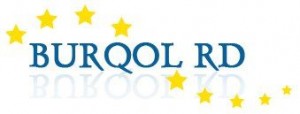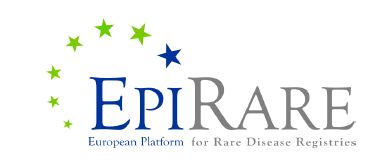![]() An International Workshop “Rare Diseases and Orphan Drug Registries” will take place on 8-9 October 2012 in Rome, Italy. The event is being organized in the framework of the EPIRARE Project (co-funded by the European Commission). The workshop is open to scientists, clinicians, patient and parent associations, policy makers and enterprises. It will consist of oral presentations, posters and focus group sessions. Abstracts are welcome on any subject and experience useful to inform and support the debate regarding the main aims of the workshop. For further information, please, visit EPIRARE website.
An International Workshop “Rare Diseases and Orphan Drug Registries” will take place on 8-9 October 2012 in Rome, Italy. The event is being organized in the framework of the EPIRARE Project (co-funded by the European Commission). The workshop is open to scientists, clinicians, patient and parent associations, policy makers and enterprises. It will consist of oral presentations, posters and focus group sessions. Abstracts are welcome on any subject and experience useful to inform and support the debate regarding the main aims of the workshop. For further information, please, visit EPIRARE website.
Проекти
Data for 255 patients with thalassemia major was collected during Phase III of the project. The Organization of Thalassemics in Bulgaria and university hematology clinics have greatly supported and helped the implementation of this phase. 251 patients (98.43%) had consented to be officially registered. Proportion of men (51.16%) is slightly higher. The average age of patients is 21 years, while minimum one is 1.5 years and maximum one is 64 years. Based on the information about birthplace, most patients with thalassemia are born in Sofia, Plovdiv, Stara Zagora, Burgas, Varna, Haskovo, Pleven and Ruse. The calculated non-standardized prevalence is 3.46 per 100 000 people. Patients are treated and followed up in 8 administrative regions in the country, as in Sofia and Plovdiv there are respectively three and two hematology centers.
 The European rare diseases project BURQOL-RD is coming into its most important stage. It will address the socio-economic cost and health-related quality of life of patients with rare diseases and their caregivers through online surveys. The active participation of patients in this project is crucial because it is the very first attempt to explore and define the socio-economic burden that patients and their families and society as a whole experience for rare diseases, and to address and study the health-related quality of life of patients with rare diseases and the effect that the disease has on their everyday emotions and perceptions. BURQOL-RD aims to form a new – improved, more comprehensive and more fair understanding of the problems of the people with rare diseases and their families, their concerns and needs. The survey is completely anonymous and consists of two parts – for the patient and for his/her main caregiver. The patient section is in two versions – for children (under 18) and adults. The study is targeting 10 different rare diseases and is available online on www.burqol-rd.eu/bg.html. Take part in the study. In this way you are not only helping yourself, your family and your patient association, but you are also helping the society and the whole of Europe!
The European rare diseases project BURQOL-RD is coming into its most important stage. It will address the socio-economic cost and health-related quality of life of patients with rare diseases and their caregivers through online surveys. The active participation of patients in this project is crucial because it is the very first attempt to explore and define the socio-economic burden that patients and their families and society as a whole experience for rare diseases, and to address and study the health-related quality of life of patients with rare diseases and the effect that the disease has on their everyday emotions and perceptions. BURQOL-RD aims to form a new – improved, more comprehensive and more fair understanding of the problems of the people with rare diseases and their families, their concerns and needs. The survey is completely anonymous and consists of two parts – for the patient and for his/her main caregiver. The patient section is in two versions – for children (under 18) and adults. The study is targeting 10 different rare diseases and is available online on www.burqol-rd.eu/bg.html. Take part in the study. In this way you are not only helping yourself, your family and your patient association, but you are also helping the society and the whole of Europe!
In November 2010 BAPES together with the Bulgarian Association “Wilson Disease” started a joint project – National registry of Wilson disease patients. A standardized registration card, developed by BAPES and covering a minimal data set, was used. Medical professionals from the gastroenterology departments of the university hospitals have help filling the cards. A total of 158 patients were identified by the pilot survey. Men were 56.25% (89 persons), women – 43.75% (69). Average age of the patients was 33.96±0.97 years, varying from 9 to 65 years. Patients are treated and followed up in 5 university centres – “St. Ivan Rilski” University Hospital, Sofia (47.47%), University Pediatric Hospital, Sofia (4.43%), “St. George” University Hospital, Plovdiv (10.76%), “St. Marina” University Hospital, Varna (25.95%), “Dr. G. Stranski” University Hospital, Pleven (11.39%).
In 2010 a joint project of BAPES and the Bulgarian Society of Gastroenterology, Gastrointestinal Endoscopy and Abdominal Echography on National registry of Crohn disease patients has been officially started. In October 2010 a pilot study collected epidemiological information for 109 patients. These results were discussed on a meeting of the gastroenterology expert board in June 2011. The National registry itself will start later this year by collecting epidemiological data from all over Bulgaria. To see the results of the project so far, please check “Registries and Statistics” section of our website.
Duration: 16 April 2011 – 16 April 2014
EC Contribution: € 661 402,00
Website: EPIRARE
General objectives:
- to build consensus and synergies to address regulatory, ethical and technical issues associated with the registration of RD patients and to elaborate possible policy scenarios
- creation of a EU platform for the collection of data on RD patients and their communication among qualified users, based on a feasibility study
- define the options for the preparation of a legal basis, the possible scopes to achieve most effective synergies, the corresponding governance framework and possible options for sustainability. The feasibility of registration of a minimum data set common to all rare diseases, designed to inform policy-making, the conditions to admit research-driven disease or treatment-specific modules and the ways to ensure a sustainable data flow will be assessed
Coordinator: Istituto Superiore di Sanità
The Bulgarian National chronic myeloid leukemia (CML) patients registry was started in November 2010 by concluding the first epidemiological study of CML patients. This project is implemented jointly with the Bulgarian Scientific Society of Clinical and Transfusion Hematology and Medical Center “RareDis”. After processing the information a total of 248 CML patients was registred. The proportion of men is 50.40% (125 patients), while that of women is 49.60% (123 patients). Standardized annual prevalence is 3.27 per 100 000 people. The average age of registered patients is 53.86 ± 15.33 years. At the time of the study, patients were treated and followed up in eight hospitals in the country, primarily in university hospitals: 2 centres in Sofia – National Hematology Hospital with 78 (31.50%) patients and “Alexandrovska” University Hospital with registered 29 (11.60%) patients, Plovdiv – 56 patients (22.60%), Varna – 48 patients (19.40%), Pleven – 27 patients (10.90%), Ruse – 5 patients (2.00%), Haskovo – 4 patients (1.60% ) and Vidin – 1 patient (0.60%). Patients from Ruse, Vidin and Haskovo receive medicinal therapy at the university clinics and are followed up by a hematologist in their home town. An update of the information on registered patients with CML, as well as registration of new cases will be held in 2011.
The second phase of the project “National registry of patients with thalassemia major in Bulgaria” was successfully completed in October 2010. The aim was to update the information on patients who were registered during the first phase of the project and to register newly diagnosed and not yet registered patients with thalassemia major. A total of 241 questionnaires (18 for primary epidemiological information about newly diagnosed patients and 223 for data update) was collected with the active assistance of medical specialists from blood transfusion centers and thalassemia patient association. After statistical processing of the submitted data, it was found that the number of men is 126 (52.28%) and 115 (47.72%) for women respectively. The average age of patients with thalassemia major is 19.5 ± 11.9 years. Their treatment is conducted in 12 hospitals in the country and chelation therapy takes place in the blood transfusion specialized centers (Sofia – three centers, Plovdiv – two centers, Varna, Stara Zagora, Pleven, Burgas, Ruse, Yambol and Silistra). These results were discussed and adopted as official for the country at a workshop of the Expert group on thalassemia, held in Varna in November. A subsequent update and collection of new epidemiological data in will be organized in March-April 2011.
Description:
А pilot epidemiological study of morbidity and incidence of chronic myeloid leukemia (CML) in Bulgaria has been completed. For the period of the study, information was gathered about 227 patients, 22 of them died. At the end of the survey (30/06/2009) there are 205 patients with CML, who are treated in the National specialized hospital for hematology and all University Hospitals in Bulgaria. The pilot study was organized and conducted in close collaboration between ICRDOD, Scientific Society of Clinical and Transfusion Hematology and Medical Center “RareDis”.
Contacts:
Help Line: (+359-32) 57 57 97
E-mail: info@raredis.org
—————————————————————————
Last modification: 10:29 04.12.2009
—————————————————————————
A meeting of the work group on the project “National registry of patients with thalassemia major in Bulgaria” was held on 30 January 2009. It was attended by medical experts and representatives of thalassaemia patient associations in Bulgaria. Among the topics of the event were the results achieved by the project so far and the main activities for 2009.
—————————————————————————
Last modification: 10:29 03.12.2009
—————————————————————————

